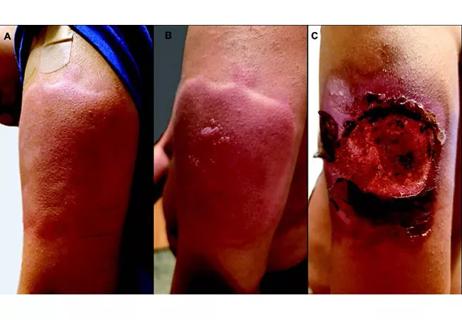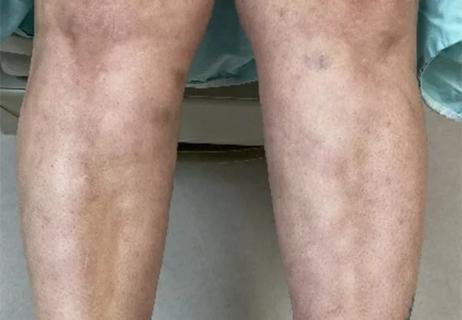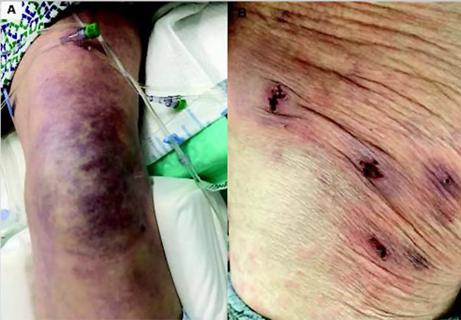In general, interrupting therapy is not advised, and patients should remain in contact with their provider teams

The COVID-19 pandemic poses particular concerns for people with multiple sclerosis (MS) and other neuroimmunologic disorders who are receiving disease-modifying therapies that act on the immune system, which potentially could increase susceptibility to and severity of COVID-19 infection. Consult QD checked in with Robert Bermel, MD, Director of Cleveland Clinic’s Mellen Center for Multiple Sclerosis Treatment and Research, to learn how Mellen Center staff are counseling their patients regarding COVID-19.
Cleveland Clinic is a non-profit academic medical center. Advertising on our site helps support our mission. We do not endorse non-Cleveland Clinic products or services. Policy
Q: What is the Mellen Center recommending its patients do to protect themselves, particularly those with MS-related disability or other health conditions?
Dr. Bermel: It is important to note that the situation with COVID-19 is rapidly evolving, and information on which to base recommendations is incomplete at present. It is possible our approach will change over time.Our general recommendations are very similar to those for the population at large. These recommendations are especially important for people with MS:
We tell patients to stay home if they have symptoms of a respiratory infection (cough, shortness of breath) or fever. If they require medical attention for a respiratory infection, we tell them to follow Cleveland Clinic recommendations, which currently are to set up an Express Care® Online (virtual) visit to assess their situation. Only if patients are too sick to remain at home should they visit an emergency room, urgent care facility or doctor’s office.
Q: What is the Mellen Center recommendation for people currently on disease-modifying therapy for MS?
Dr. Bermel: Handwashing, social distancing and the other standard precautions detailed above are of extra importance for these patients and those they come into frequent contact with. These individuals must take the precautions very seriously.
At this time, there are no additional special restrictions on activities for patients with MS on disease-modifying therapy beyond those outlined above.
The current Mellen Center recommendation is that people with MS not cancel, interrupt or delay scheduled doses of their MS medications. These medications’ mechanism of action and duration of action, along with patients’ risks of MS disease activity coming back, are reasons to not delay treatment, given the current lack of data on increased risk of COVID-19 infection or complications. Based on best available current evidence, for most patients we think it is unlikely that stopping or delaying MS disease-modifying therapies will reduce susceptibility to, or decrease the risk of complications from, COVID-19. This recommendation is consistent with recent guidance from the National Multiple Sclerosis Society about COVID-19.
We are combining this general guidance with an individualized approach to managing MS that weighs the risks — not only of the medication but also of visiting infusion centers — with the benefit of the treatment. There may be some patients for whom delaying treatment is acceptable or even advised, if adjusting the dosing interval would reduce their risk of exposure to the virus. Some longer-acting MS infusions may be effective beyond the standard redosing interval, and redosing them requires bringing a patient to a healthcare facility where they risk contracting the virus. We consider extending the dosing interval for patients at higher risk of COVID-19 complications, which may include the following:
These types of decisions require patients to interact with their provider teams. For safety and convenience, this contact is often occurring electronically, via virtual visits or MyChart messages for our established patients. We are offering Express Care Online virtual education visits for new patients as well.
If a patient on an MS medication is diagnosed with the flu or COVID-19, they should communicate that to their MS treatment team. At the Mellen Center, virtual visits are the preferred option for doing this.
People who have specific concerns about their risk of COVID-19 should talk to their providers about their individual situation.
Q: What is the Mellen Center recommendation for people with MS who face a decision right now about when to start disease-modifying therapy or which medication to choose?
Dr. Bermel: Decisions about starting or switching disease-modifying therapy, which is in fact immune-modulating therapy, in the next few months need to be individualized. They should be based on discussion between a patient and his or her healthcare provider, weighing the risk of their disease and the risk of viral infection. Patients should talk to their providers.
Dr. Bermel acknowledges all the Mellen Center physicians who contributed to the Mellen Center approach to COVID-19, and particularly three colleagues who provided feedback on this article: Jeffrey Cohen, MD; Robert Fox, MD; and Daniel Ontaneda, MD.

Patients report improved sense of smell and taste

Clinicians who are accustomed to uncertainty can do well by patients

Unique skin changes can occur after infection or vaccine

Cleveland Clinic analysis suggests that obtaining care for the virus might reveal a previously undiagnosed condition

As the pandemic evolves, rheumatologists must continue to be mindful of most vulnerable patients

Early results suggest positive outcomes from COVID-19 PrEP treatment

Could the virus have caused the condition or triggered previously undiagnosed disease?

Five categories of cutaneous abnormalities are associated with COVID-19